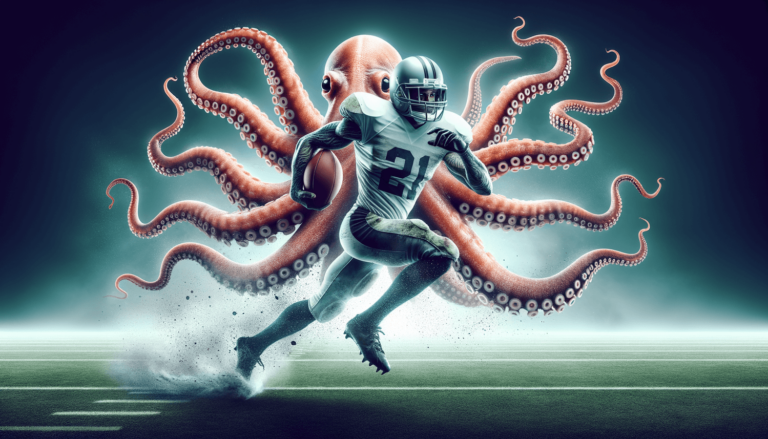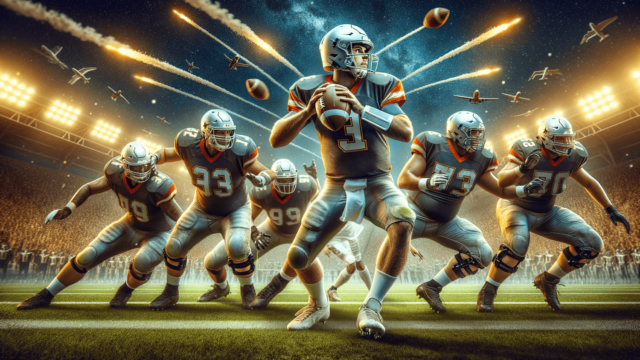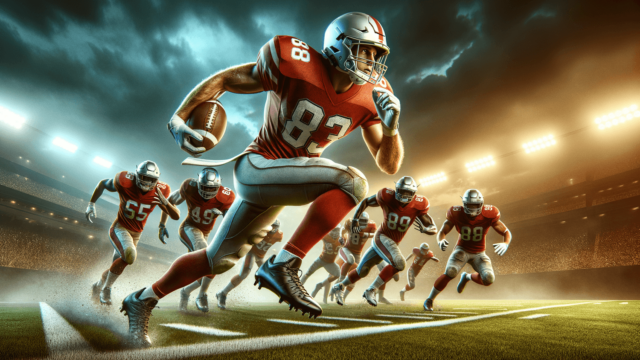
An octopus in football refers to a player with excellent ball control, vision, and passing ability, who can occupy multiple positions simultaneously and dominate the midfield area, much like an octopus with its multiple tentacles. Some notable examples include Xavi Hernández and Luka Modrić.
Defining an Octopus in Football
An octopus in football is a term used to describe a player with exceptional ball control, vision, and passing ability, who excels in occupying multiple positions simultaneously, thus dominating the midfield area. These players seem omnipresent on the field, intercepting passes and dictating the flow of the game, resembling an octopus with its multiple tentacles.
Characteristics of a Football Octopus
Technical Skills
Octopus-like players exhibit excellent technical skills, such as dribbling, first touch, and precise passing. These abilities allow them to hold the ball under pressure and distribute it to teammates effectively.
Positional Awareness
Their positional awareness enables them to occupy crucial spaces on the field, covering areas where they can intercept the ball and launch attacks. This ability to read the game makes it difficult for opponents to bypass them.
Physical Attributes
Although physical attributes vary, football octopuses often possess high levels of stamina and agility, allowing them to cover a large portion of the field and maintain a high work rate throughout the game.
Vision and Creativity
Their vision and creativity enable them to spot gaps in the opposition’s defense, provide key passes, and create goal-scoring opportunities for their team, often orchestrating pivotal moments in a match.
Notable Octopus Players
Some exceptional footballers who have displayed octopus-like qualities during their careers include Xavi Hernández, Luka Modrić, Andrés Iniesta, and Andrea Pirlo. These players are often hailed for their ability to control the tempo of the game and contribute both defensively and offensively for their teams.
Importance of an Octopus Player in a Team
An octopus player is often considered the backbone of a team, connecting the defense and attack, while controlling the midfield. Their ability to dictate the flow of the game and maintain possession allows their team to create goal-scoring opportunities while preventing the opposition from building momentum. This results in an advantageous effect on the team’s overall performance and has a significant impact on match outcomes.
Developing an Octopus Mentality
Aspiring footballers can incorporate elements of an octopus player’s mentality by focusing on their development in specific areas:
Mastering Fundamentals
Excelling in ball control, passing, and dribbling is essential for players looking to adopt an octopus-like playing style. Regular practice, good coaching, and consistent self-improvement will help in honing these skills.
Building Endurance and Agility
Incorporating conditioning exercises into a training regimen will help players improve their endurance and agility on the field, allowing them to maintain a high work rate and cover large portions of the field during a match.
Improving Decision-Making and Game Intelligence
Players can enhance their decision-making and game intelligence by analyzing matches, studying tactics, and understanding the responsibilities of various positions on the field. Additionally, learning from experienced players can help one develop a better understanding of the game.
Tactical Usage of an Octopus Player
Coaches can deploy octopus players strategically to exploit their unique skill set and maximize their influence on the game. Common tactical instructions can include:
Deep-Lying Playmaker
Placing an octopus player in a deep-lying playmaker position enables them to receive the ball from the defense and dictate the team’s offensive moves with their exceptional passing range and vision.
Box-to-Box Midfielder
An octopus player can also function as a box-to-box midfielder, providing defensive support when needed and participating in attacking plays. Their versatility and work rate make them an asset in this role.
Central Attacking Midfielder
Operating as a central attacking midfielder, an octopus player can use their creativity and awareness to unlock the opposition’s defense and create opportunities for their teammates.
FAQs about Octopus Players in Football
For those seeking further information about octopus players in football, here are some of the most common questions and their answers to provide a deeper understanding of this unique playing style.
Are octopus players limited to midfield roles?
While the term “octopus” is usually associated with midfielders, players in other positions can display similar characteristics. However, it is most commonly used for midfielders as they have greater influence in controlling the game’s rhythm and tempo.
How important is an octopus player to a team’s success?
An octopus player can be instrumental in a team’s success by dictating the game’s flow, orchestrating attacks, and providing defensive support. Their presence can have a significant impact on the outcome of a match, but it is essential to remember that football is a team sport and the contributions of every player matter.
Can a team have more than one octopus player?
Yes, a team can have more than one octopus player. Depending on the tactics and formation, coaches may choose to deploy multiple midfielders with similar skill sets to dominate the midfield area and enhance their team’s ball possession.
What are the key attributes to look for in an octopus player?
Some key attributes to look for in an octopus player include exceptional ball control, vision, passing ability, positional awareness, stamina, agility, and decision-making. These characteristics allow them to excel in multiple roles and influence the game in various ways.
Are there any notable female footballers with octopus-like traits?
Yes, several female footballers exhibit octopus-like traits, including Dzsenifer Marozsán, Amandine Henry, and Kim Little. These athletes show exceptional technical abilities, vision, and game intelligence, contributing significantly to their respective teams’ success.
Featured Posts
- No pillar pages found.





